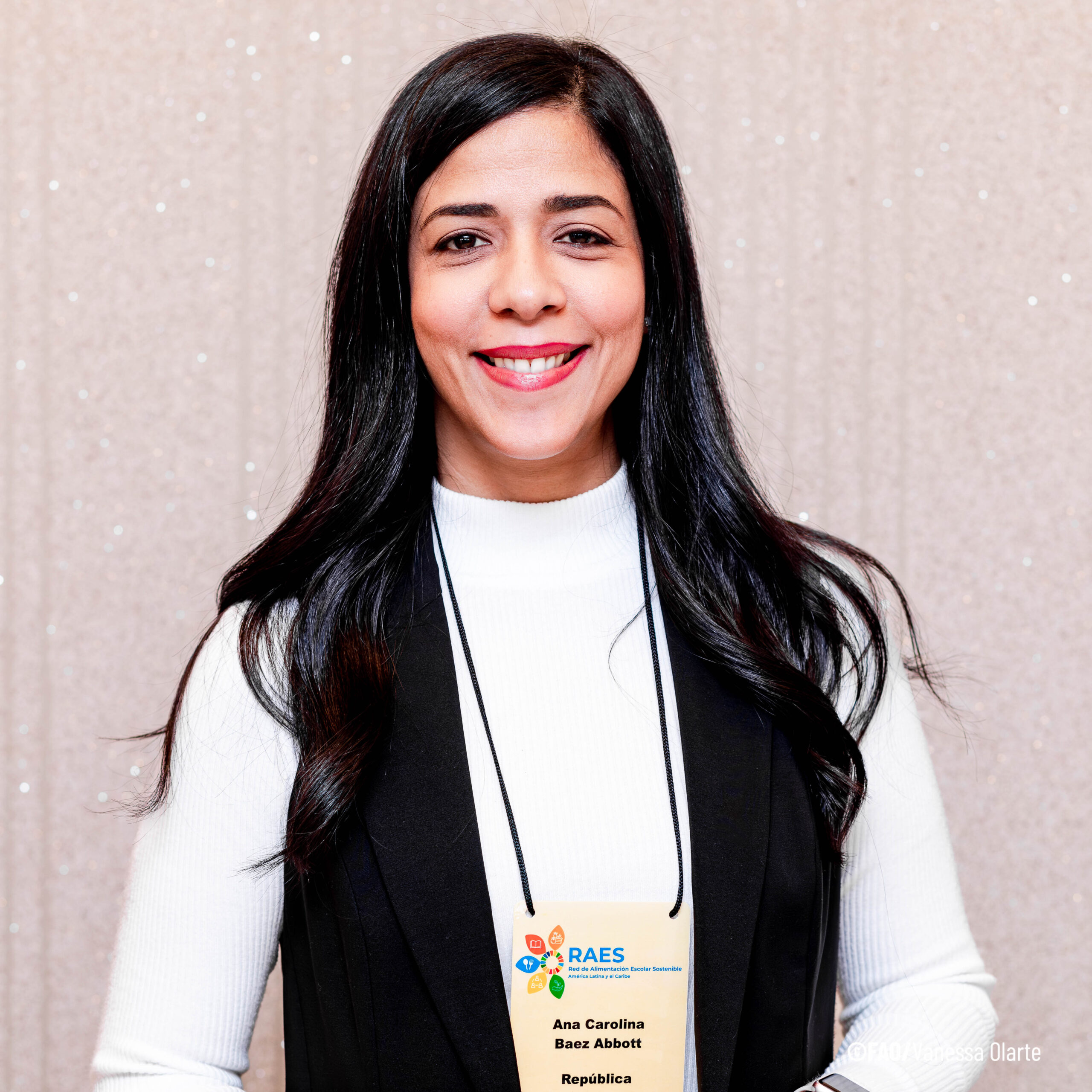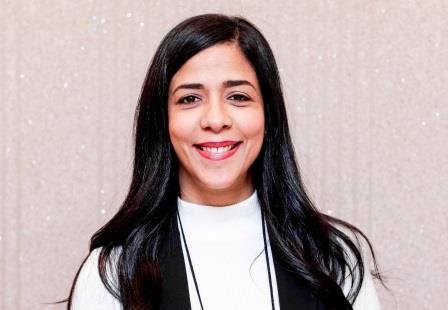In interview to the RAES platform, Ana Carolina Baez talks about the improvements in the school feeding programme of the Dominican Republic
Paulo Beraldo
“The lessons we have learned from the exchanges have allowed us to support decision-making to strengthen our school feeding programme”. This is what Ana Carolina Báez, director of nutritional formulation and evaluation at the National Institute for Student Welfare (INABIE), says about the importance of the Dominican Republic being part of the Sustainable School Feeding Network (RAES).
The Dominican Republic is one of the 21 countries in Latin America and the Caribbean that make up the RAES, an international cooperation initiative created by the Brazilian Government and supported by the Food and Agriculture Organization of the United Nations (FAO) to strengthen school feeding policies in the region.
“For several years, the Brazil-FAO Cooperation has been working with us by sharing their knowledge, technical advice, workshops, visits and exchanges,” added Ana Carolina, who was part of a mission from her country in May in Brazil to learn more about the implementation of the Brazilian school feeding policy and exchange experiences with other Latin American countries.
The Dominican group was made up of members of FAO in the country, the INABIE, the Supérate Programme and the ministries of Agriculture and of Health. On the occasion, Ana made this interview to be published on the RAES platform.

How do you think that the participation of the Dominican Republic in events like this and in the Sustainable School Feeding Network (RAES) contributes to local politics?
School feeding programmes constitute an extremely important social policy for our countries, to combat malnutrition and bring health to our schoolchildren. These exchanges are very important in the training of our technicians. They also help to sensitize the authorities and decision makers about initiatives that contribute to the well-being of our students.
Can you mention specific changes that occurred in the school feeding policy in the Dominican Republic?
In the last two years that we have been actively participating in the RAES, we have made important decisions, such as the exclusion of sugary drinks from the school feeding programme. These drinks contribute a large amount of sugar daily, which is related to health problems, such as chronic diseases, obesity and being overweight. Taking into account everything we have learned in these exchanges, we have taken this very important step. We have also started to include fresh fruits, a historic change, since fresh fruit had never been part of our menus. That has also been a very important step.
Ana Carolina, can you tell us a little more about the experience of institutionalizing the school feeding policy?
Another aspect that we have learned about through these exchanges is the experience of other countries in terms of regulatory frameworks, which has served us as a guide. This year our institution with the support of FAO, the Parliamentary Front against Hunger and multiple government institutions, civil society, academia and medical societies, built a draft School Food and Nutrition Law that was deposited before the Chamber of Deputies and which is currently waiting to be evaluated.
It is a draft that seeks to guarantee that the improvements and advances that we have had and that we will have in our school feeding programme are not the will of the authorities of the moment, but rather that they can be institutionalized.
In your vision, what does it mean for the Dominican Republic and for INABIE to be part of this network?
It is an honor to be part of the RAES network, to be sharing with other countries, learning from experiences and seeing that it is possible to make changes. Sometimes we think that the system is suffocating us, that we cannot take the necessary steps, and the truth is that seeing how other countries have advanced and showing our steps is important.
Seeing the model of Brazil, which supports us so much, makes us think that all this is possible, that with small steps we can move towards a healthier and more sustainable school feeding policy. We are very rich countries, different and at the same time very similar realities and problems. With a common objective and exchange of experiences, we can move forward to have a healthier diet.



